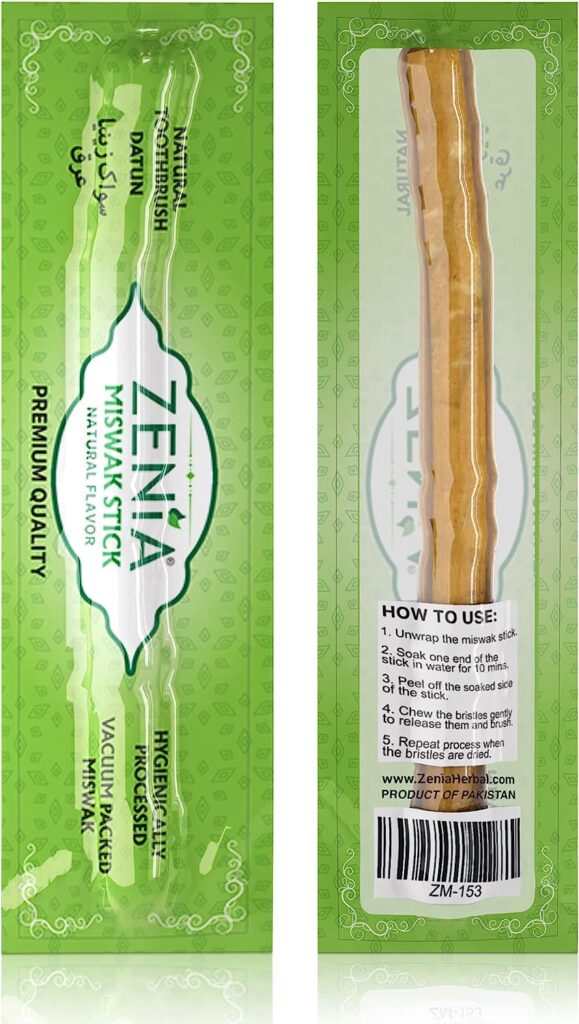Fasting, whether it is for religious, health, or lifestyle reasons, often leaves people with a host of questions about what’s allowed and what’s not. One such question that tends to float around is, “Does using mouthwash break your fast?”
It’s a question that is both relevant and common, as mouthwash is an integral part of many people’s oral hygiene practices.
The truth is that it depends on the type of fasting you are engaging in. If you are fasting for religious reasons such as during the Ramadan, mouthwash would be considered as breaking the fast. However, if you’re fasting for health or lifestyle reasons, such as intermittent fasting, using mouthwash won’t break your fast.
We will take a closer look into this nuanced topic in the rest of this article, exploring different fasting type and how mouthwash could potentially break your fast.
What is Fasting?
Fasting is a practice that involves abstinence from food and some times drinks, for a specified period of time. It has a common practice that trascends across cultures, religions, and historical eras, taking on various forms and rules depending on the type of fasting.
1. Religious Fasting
In religious contexts, fasting often serves as a form of spiritual cleansing or penitence. For instance, during the Islamic holy month of Ramadan, fasting from dawn until dusk is one of the Five Pillars of Islam. Similarly, the Christian observance of Lent involves 40 days of fasting and reflection. These religious fasts usually come with a set of guidelines that may also restrict other forms of consumption or activity, such as smoking or sexual relations.
2. Health & Lifestyle Fasting
In a medical or health context, fasting has risen in popularity due to the potential physiological benefits it can bring. Health can be categorized into several types. The most popular is intermittent fasting, which typically involves 16-hour fasts each day or 24-hour fasts a few times a week. Another type, known as water fasting, permits the consumption of water but excludes all forms of food and caloric beverages.
Some proponents argue that intermittent fasting can improve metabolic health, promote weight loss, and even extend lifespan. Scientific research on these claims is still emerging but has shown some promising results, including improved insulin sensitivity, better lipid profiles, and reductions in inflammatory markers.
However, extended fasting (beyond 48 hours) can cause potential harm to the body, including significant weight loss, metabolic changes, and nutrient deficiencies. These long term fasting should only be taken under strict medical supervision.
3. Other Types of Fasting
Beyond religious observance and potential health benefits, fasting is sometimes used as a form of protest, as seen in hunger strikes, or as a therapeutic tool in certain medical treatments.
The objectives and rules of fasting can vary significantly, so it’s crucial to understand the specific guidelines or aims when engaging in this practice. Whether it’s for spiritual growth, detoxification, weight loss, or metabolic health, fasting is a multifaceted practice with a wide range of applications and implications.
What Will Cause Breaking of Fast?
The conditions for breaking a fast can be quite diverse, depending on whether the fasting is for religious, health, or therapeutic reasons.
For religious fasting, breaking the fast often occurs when any food or drink is consumed; even unintentional swallowing of saliva or water is generally frowned upon. Some religious fasting guidelines also specify that inducing vomiting or engaging in sexual activities can void the fast. Each religious tradition may also have additional unique rules that can lead to breaking the fast, like engaging in sinful behavior or not adhering to certain rituals.
For health-oriented fasts like intermittent fasting, the primary condition for breaking the fast is the consumption of calories. In these cases, the consumption of food or breverages, or even taking certain medications or supplements with caloric content can end the fast. Some strict forms of health fasting also consider the sublingual absorption of substances like mouthwash or medications as a fast-breaking event since these may introduce minimal calories into the system.
You may be interested in: Can You Drink Water Immediately After Using Mouthwash?
For other types of fasting, it depends on the specific guidelines on what conditions or activities will break the fast.
Still, fasting requires self-discipline and knowing when it is necessary to break the fast. If health complications arise, such as severe dehydration or dangerously low blood sugar levels, breaking the fast may be needed for medical reasons. If you are unsure of what constitute the breaking of a fast, do consult a healthcare provider or a qualified religious or community leader; they will be able to offer tailored guidance based on the type of fasting you are undergoing.
Does Toothpaste Break Your Fast?
Similar to whether mouthwash breaks your fast, the question of whether toothpaste breaks a fast is subject to interpretation and depends on the type of the fast.
In religious fasts like Ramandan, the use of toothpaste, which is inevitably swallowed in small amounts, will be considered as breaking the fast. Some religious authorities recommend using a miswak (a teeth-cleaning twig used in various communities) or simply brushing without toothpaste.
If you are undergoing intermittent fasting, the primary concern is caloric intake. Toothpaste is not intended to be ingested and contains minimal calories, so from a calorie perspective, it is unlikely to break a fast. However, some people argue that the sweeteners in toothpaste could potentially trigger an insulin response, which may technically break a fast, depending on your fasting goals.
In general, using toothpaste is not typically considered to break a fast. If you’re fasting to give your digestive system a break, or for detoxification purposes, using toothpaste is unlikely to interfere with your goals.
Concluding Thoughts
To sum it all up, the question of whether using mouthwash breaks your fast is one that doesn’t have a one-size-fits-all answer.
For strict religious fasts, like Ramadan, using mouthwash could be considered a break, especially if it involves swallowing any liquid, even unintentionally. For health related fasting, breaking it is unlikely as most mouthwashes are not intended to be ingested and contain minimal calories.
Ultimately, understanding the guidelines and objectives of your particular fast is crucial for determining what may or may not break it. When in doubt, seek guidance from qualified professionals or religious leaders to ensure that you’re adhering to your fasting protocol appropriately.








